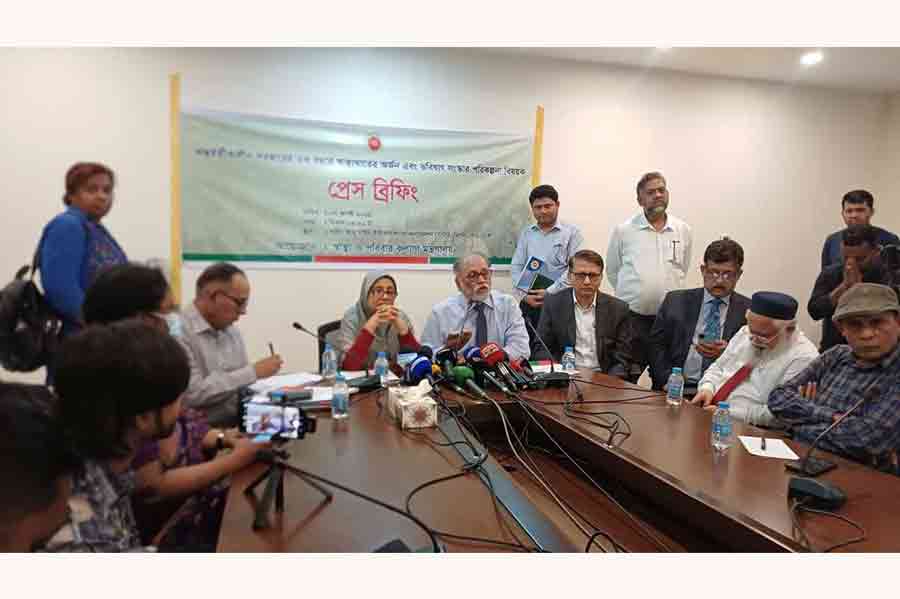Health ministry diagnoses ‘10 illnesses’ in plan to overhaul healthcare system

Published :
Updated :

The health ministry has identified 10 major structural and systemic flaws, describing them as “diseases”, in Bangladesh’s healthcare system as part of an ongoing reform initiative.
On Thursday, Sayedur Rahman, special assistant to the chief advisor, said the diagnosis follows one year of governance, during which the ministry consulted ordinary citizens, stakeholders, and experts, alongside recommendations from the Health Reform Commission.
Among the most critical issues flagged: a healthcare system disconnected from merit, knowledge and competence; over-centralisation of decisions in Dhaka; neglect of primary care in favour of specialised treatment; lack of transparency and a culture of impunity; and widespread demotivation among service providers.
Other structural failures cited include: poor leadership; erosion of ethics and competing interests; dependence on foreign sources for medical equipment, pharmaceuticals and even ideas; and the absence of strategic planning and maintenance.
“Many of these diseases can be cured, and where a complete cure is not possible, we aim to initiate treatment so future governments can carry it forward,” Sayedur said.
As part of immediate steps, the ministry has abolished all quota systems in medical and dental admissions. A new transparent, merit-based, automated matrix for recruitment and postings has been introduced.
Noting the Public Service Commission’s slow hiring process, which takes up to three years, Sayedur announced plans to form a separate commission under PSC for health. “We need a massive workforce, and cannot afford this delay.”
Low-quality private medical colleges, deemed a “30- to 40-year health risk”, will be shut down, he added.
Hospitals linked to medical colleges will be split into academic and service wings to improve patient care. Proposals are also in place to decentralise health services: a women’s health institute in the south, a “health city” in the north, and elderly health facilities in the east.
Plans are also under way to separate urban and rural primary healthcare, with state responsibility for delivery enshrined in the constitution. Recruitment is ongoing for 3,000 doctors via a special BCS and 3,200 nurses.
Health Advisor Nurjahan Begum said the government is “rebuilding the entire health system” and expects citizens to feel the benefits soon.


 For all latest news, follow The Financial Express Google News channel.
For all latest news, follow The Financial Express Google News channel.